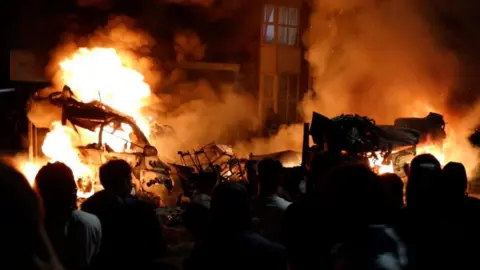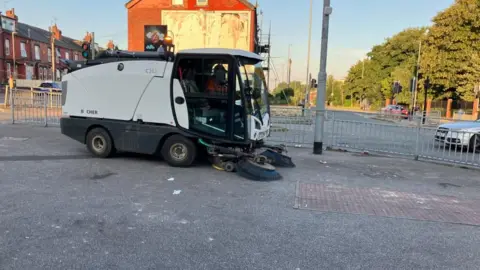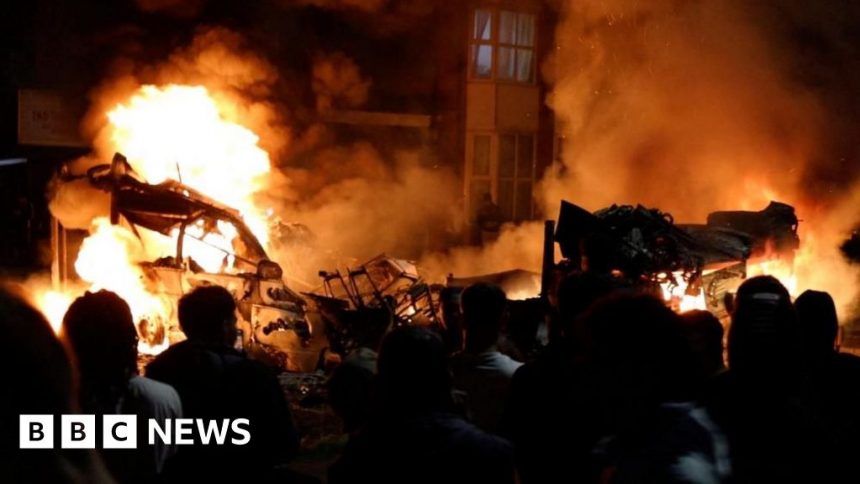Children returned to family after Leeds disorder
 Instagram/Reuters
Instagram/ReutersFour children whose removal into foster care prompted disorder in Leeds have now been returned to stay with their extended family.
The children had been staying with other extended family members when they were taken into emergency care by police and social workers on Thursday over concerns they would be taken out of the UK.
This sparked disorder which led to a bus being torched and a police car being overturned in the suburb of Harehills.
During a Family Court hearing, Judge Her Honour Justice Helen Trotter-Jackson said it was important everyone “focuses on the children’s welfare and taking the temperature down in this case”.
 Snapchat
SnapchatThe decision was welcomed by the children’s parents, with the mother telling the BBC: “I’m glad the children are back with the family.”
Judge Trotter-Jackson explained that the Family Court had given permission for the children to be removed because of fears they would be taken out of the UK.
Leeds Children’s Services had been told “by a third party” that family members planned to take them to Romania.
The court heard the children were all foreign nationals without settled status in the UK, and it could be difficult for them to return to Britain.
All were already subject to Family Court orders, which would make it unlawful to remove them from the UK without the permission of either the local authority or the court.
Those orders were made in April, after a baby in the family was taken to hospital with unexplained injuries.
The children were placed with other family members in the Harehills area.
Last week they were moved to live with foster carers and the court heard they had been unhappy and unsettled.
Their passports have been surrendered to the court.
Iain Hutchinson, barrister for Leeds City Council, said that over the weekend, following the disorder, there had been “extensive meetings” between key individuals in the council and family members.
He said the council’s position was “the children can be returned to a family placement today”.
Mr Hutchinson said the authority recognised the children “will be overjoyed” by their return to the extended family.
The council asked that there be no celebration on the streets.

Catherine Mason, barrister for the Children and Family Court Advisory Support Service (Cafcass), said the guardian, a social worker employed by Cafcass who represents the children’s welfare, opposed the placement.
In this case, she had not had time to visit the home and had some additional safety concerns, the court was told.
Judge Trotter-Jackson addressed some of those concerns and ruled that it would be in the children’s best interests to be placed with their extended family.
She said there was no guarantee the four children could stay together if they were in foster care, nor that they would be “culturally matched”.
She endorsed the family placement and said her paramount concern was the welfare of the children.
Judge Trotter-Jackson asked all present to be “mindful” of their behaviour and “put the children first”.







